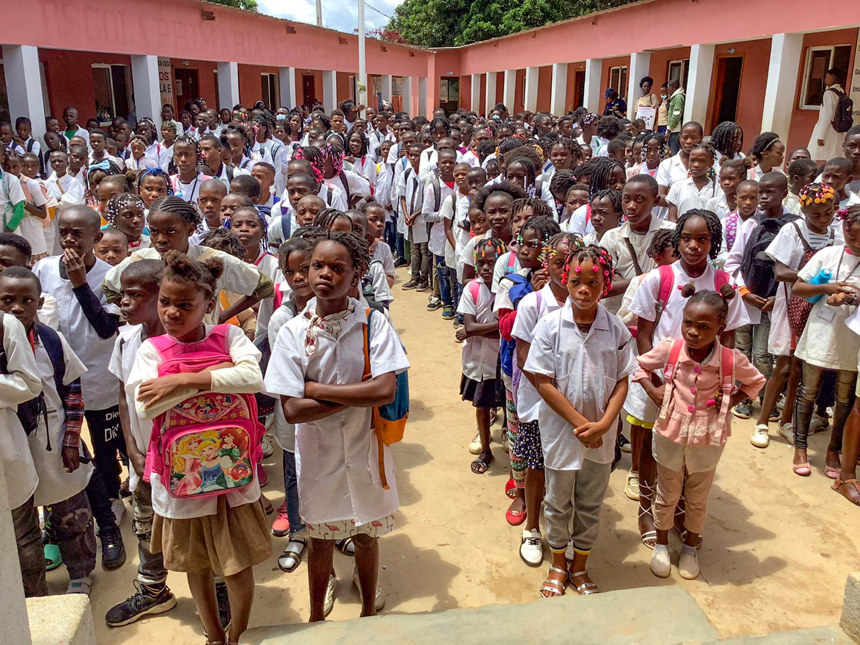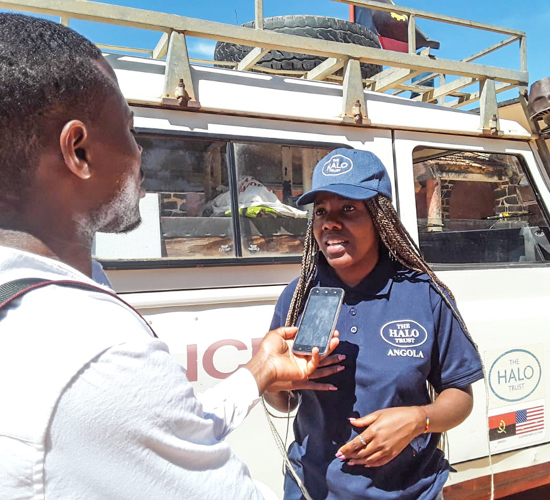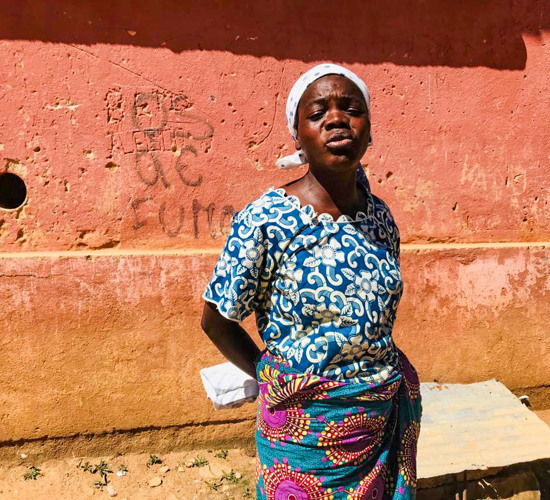On a bright Spring morning in the Bairro de Santo António of Angola's second city Huambo, hundreds of children in white school tunics and colourful bookbags watch attentively as Felicia Pandassala tells them how to avoid being injured by old bombs.
Felicia, a Programme Officer with the HALO Trust, is leading an effort to reduce the number of injuries and deaths amongst children caused by unexploded ordnance left over from Angola's long civil war.

Children at a Huambo school line up for risk education
Angola's long civil war ended in 2002 and HALO has cleared Huambo Province of all 290 of its minefields – destroying over 13,500 antipersonnel mines in the process. However in 2022 there were five serious accidents with discarded unexploded devices such as grenades and shells found by children. Those accidents killed seven and injured 18 in the Province.
A key driver of the accidents is thought by the local authorities to be the scrap metal trade, where rising prices are encouraging children to hunt for metal and is bringing them into contact with grenades, mortars, shells and other explosives.
HALO's Huambo risk education campaign, in partnership with the Angolan mine action authority ANAM, is funded by the US State Department's Office for Weapons Removal and Abatement (PM/WRA).

HALO's Huambo campaign began in February and involved getting the message across to local media as well as schools, community centres, markets and motorbike shops. Scrap metal dealers and traders and their pick-up points are also being targeted as part of the education campaign. In the first month of the campaign, HALO's community liaison team has conducted over 55 sessions across Huambo reaching over 12,000 women, men, girls, and boys with lifesaving messaging.
One result of the campaign is an increase in the number of reports HALO is receiving from the public about suspicious items. In the first month of the campaign seven people reported devices which could be dealt with by HALO's explosive ordnance call-out teams.
The scrapping of explosives is a common feature in a number of post-conflict, low-income countries. In Afghanistan HALO's call-out teams regularly visit smelting factories to deal with dangerouos items and accidents among people scrpping metal can be very high.

HALO's risk education campaign is funded by the US State Department



